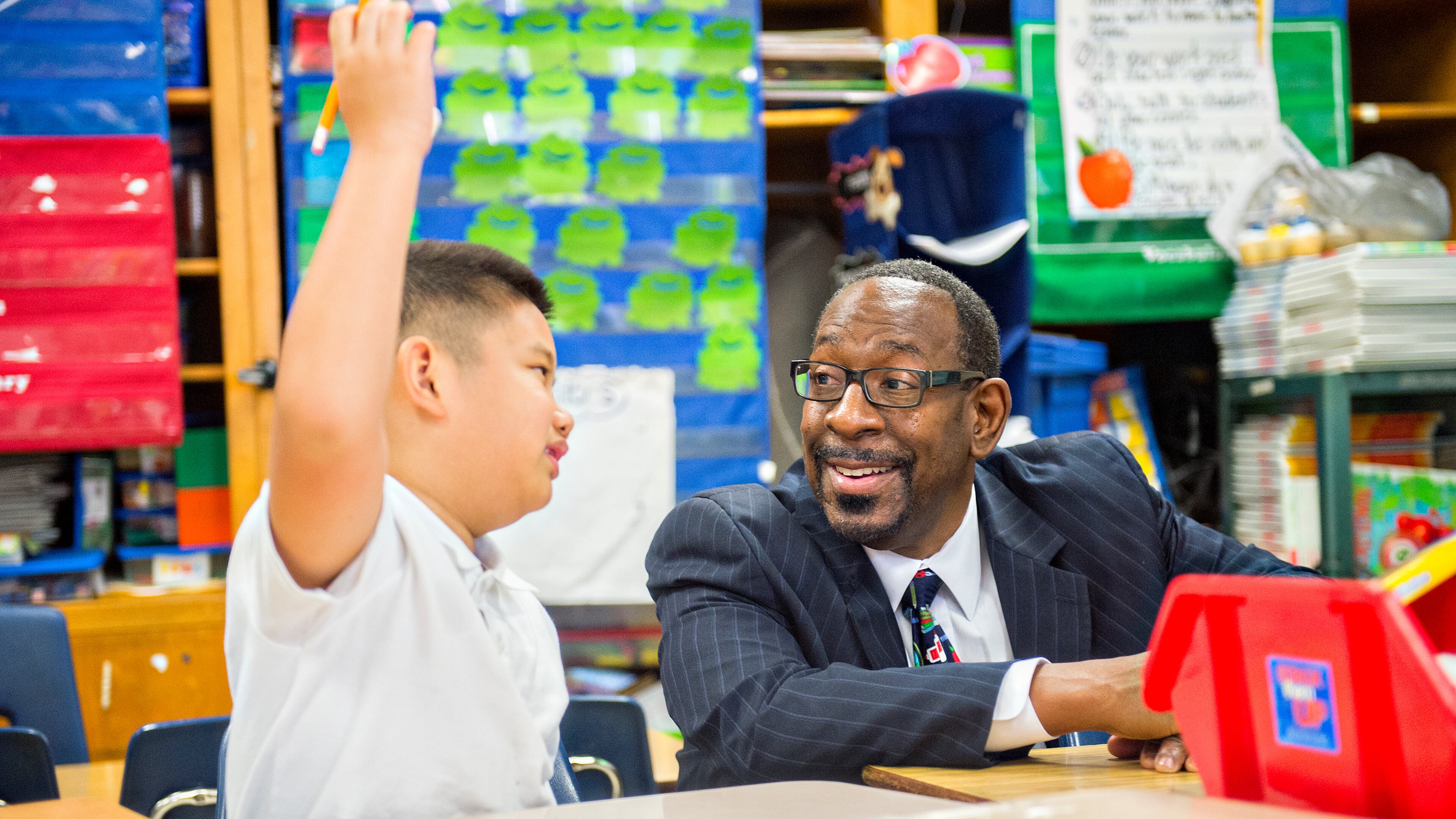DeKalb school chief: With defeat of Opportunity School District, let's work on real problems

DeKalb County School District Superintendent Steve Green discusses the emphatic voter rejection of Gov. Nathan Deal's state takeover plan and what needs to happen now to help struggling schools.
By Steve Green
The people spoke. Loud. Clear. Overwhelmingly.
Georgians want schools focused on partnership, not politics.
The emphatic rejection of a state-sponsored school takeover plan leaves no doubt that Georgia citizens want schools to remain locally controlled, with the partnership of all stakeholders – teacher and administrator, parent and caretaker, community and commercial enterprise.
It was gratifying to see voters show confidence in the efforts of local school districts. We are thankful for such good faith, and we’ll work tirelessly to keep earning that trust.
With a divisive political issue behind us, it's now time for Georgia leaders to address the real problems that stand in the schoolhouse door: Poverty. Broken homes. Discrimination. Unemployment. The usual socioeconomic suspects.
The negative impact of poverty on education is hardly breaking news. Study after study shows the connections between social issues and student performance.
We invite … better said, we welcome … Gov. Nathan Deal, with state and federal governments and other parties of interest to join us at this point of common understanding. In partnership, we can now help school families overcome the real barriers to effective education. It's time to bring together resources … and resourceful collaboration … to support socioeconomic improvements that boost schools and students .
Last May, I met with Gov. Deal and his staff, and I felt a willingness from the governor to consider added assistance. We discussed big-picture problems, including constant challenges to school families that must be solved if students hope to have a fighting chance in the classroom.
Here’s one example of the challenges school families face: The DeKalb County Watershed Department recently cut off water to an apartment complex (Creekside Forest Apartments) that chronically rated below health code. This action forced evacuations and disrupted the lives of dozens of school children and their families. Our school district mobilized resources to support these students … first working to simply keep up with them, then laboring for days to set up safe transportation so they could continue studies at their home schools.
Problems like these happen outside the classroom … but they have everything to do with student success inside the classroom. With 135 schools and 102,000 students from 180 nations and with 144 languages, our district deals with extracurricular problems constantly. To help school families with socioeconomic problems, we simply need more social support services – "wrap-around services" – encompassing everything from basic transportation to family counseling.
Why? The connection between good family situations and good test scores is undeniable.
During its takeover campaign, the state labeled as 26 DeKalb schools as "failing," based on standardized test scores … tests that will never be able to fairly take into account or accurately measure the unbelievable complexity of education and learning in a district like ours.
Even so, we are clearly on a path of improvement and success. Of the 26 schools, 15 now test within five points of being removed from the target list. We allocated $6.9 million last year and $2 million this year to schools most at risk, with funding now focused on the 10 lowest-testing ones. (We call these Horizon schools, not ‘failing’ schools.) Our turnaround model is based on successful experiences in Kansas City and New York City.
The key elements in our transformation? Rigor, relevance, and relationships – especially the relationships with parents and caregivers. Teachers and principals may come and go, but relationships with parents and community stand in stone.
I am hopeful that contentious situations will now give way to collaborations. Again, we welcome a partnership with our governor, state and federal governments, and other organizations to strengthen our schools by strengthening our school families.
We have a long way to go. The work is ongoing and deep. This is transformation, not transition. Results won't be immediate, and anything that disrupts our focus – like school take-over legislation – affects the morale of students, parents, and our valued teachers.
Still, as we partner to get this right, DeKalb County School District and the state of Georgia can stand as a national example for how to transform low-testing schools … and fulfil the potential of every child attending one.



